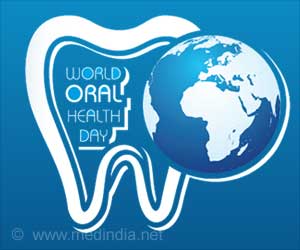Prioritizing oral health is key to overall well-being. Join us in celebrating World Oral Health Day, emphasizing the link between a healthy mouth and a healthy body.
- "A Happy Mouth is a Happy Body" highlights the vital link between oral health and overall well-being
- World Oral Health Day fosters global community involvement to promote oral health literacy and empower individuals
- Governments and healthcare organizations worldwide unite to provide access to dental care and implement policies supporting oral health initiatives
The Connection Between Oral Health and Overall Health and Well-Being
Go to source).
World Oral Health Day: Theme
The theme of "A Happy Mouth is a Happy Body" underscores the intimate connection between oral health and overall well-being. It highlights the profound impact that a healthy mouth can have on one's physical, emotional, and social health. A happy mouth, free from dental issues and discomfort, enables individuals to enjoy a better quality of life, allowing them to eat, speak, and interact with confidence and ease. Moreover, it serves as a foundation for overall wellness, promoting systemic health and reducing the risk of chronic diseases. By embracing this theme, World Oral Health Day encourages individuals to prioritize their oral health as an essential aspect of holistic self-care, emphasizing that a happy mouth is not merely a cosmetic asset but a vital component of a happy and thriving body.World Oral Health Day: Significance
Oral health is often overlooked, yet it plays a crucial role in our daily lives. From speaking and eating to expressing emotions through smiles, our mouths are essential for communication and sustenance. However, maintaining oral hygiene is not only about preventing bad breath or cavities; it is also about safeguarding overall health.Poor oral health can lead to various problems, including gum disease, tooth decay, and oral cancer. Moreover, research has shown that oral health is closely linked to systemic health conditions such as diabetes, heart disease, and respiratory infections. Therefore, neglecting oral hygiene can have far-reaching consequences beyond dental issues, affecting one's overall quality of life.
Promoting Oral Health
World Oral Health Day serves as a platform to promote preventive measures and encourage healthy oral habits. Dental professionals, healthcare organizations, governments, and communities worldwide come together to spread awareness and educate people about the importance of oral hygiene.Regular dental check-ups, daily brushing and flossing, and adopting a balanced diet are fundamental practices for maintaining good oral health. Additionally, avoiding tobacco use and limiting the consumption of sugary foods and beverages can significantly reduce the risk of dental problems.
The Link Between Oral Health and Overall Well-being
The mouth serves as a gateway to the body, and the state of oral health can influence systemic health and vice versa. Research has revealed several connections between oral health and overall well-being:1. Cardiovascular Health:
Poor oral health, particularly gum disease, has been associated with an increased risk of cardiovascular diseases such as heart attack and stroke. Bacteria from the mouth can enter the bloodstream, leading to inflammation and potentially affecting the heart and blood vessels.2. Diabetes Management:
Individuals with diabetes are more prone to gum disease, and untreated gum disease can make it challenging to control blood sugar levels. Therefore, maintaining good oral hygiene is essential for managing diabetes effectively.3. Respiratory Health:
Oral bacteria can be inhaled into the lungs, contributing to respiratory infections such as pneumonia. Proper oral hygiene can reduce the risk of these infections, especially in vulnerable populations such as the elderly and individuals with compromised immune systems.4. Pregnancy Outcomes:
Poor oral health during pregnancy has been linked to adverse pregnancy outcomes, including preterm birth and low birth weight. Expectant mothers are encouraged to prioritize oral hygiene and seek dental care to safeguard their own health and that of their babies.Empowering Communities for Better Oral Health
World Oral Health Day is not just about individual practices but also about fostering community engagement and empowerment. By promoting oral health literacy and providing access to dental care, communities can work together to improve oral health outcomes for all.Governments play a vital role in implementing policies that support oral health initiatives, such as fluoridation programs and school-based dental services. Additionally, public awareness campaigns and educational programs can empower individuals to take charge of their oral health and make informed choices.
World Oral Health Day serves as a reminder that a healthy mouth is essential for a happy and fulfilling life. By prioritizing oral hygiene, adopting preventive measures, and seeking timely dental care, individuals can maintain optimal oral health and contribute to their overall well-being. Through collaborative efforts at the global, national, and community levels, we can strive towards a world where everyone enjoys the benefits of a happy and healthy smile.
"A healthy mouth is not just about a pretty smile; it's the foundation of overall well-being."
Reference:
- The Connection Between Oral Health and Overall Health and Well-Being - (https://www.ncbi.nlm.nih.gov/books/NBK219661/)
Source-Medindia
















